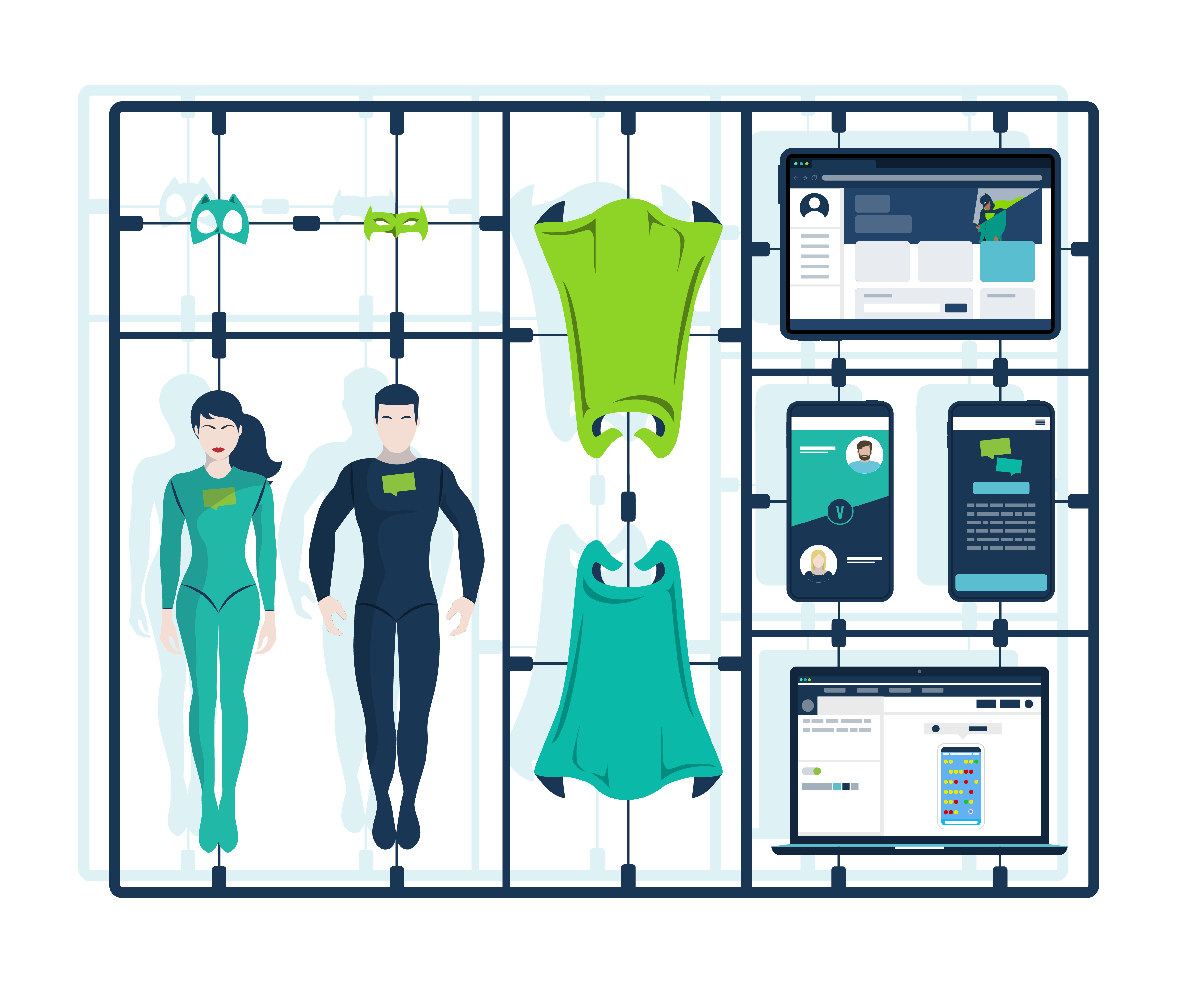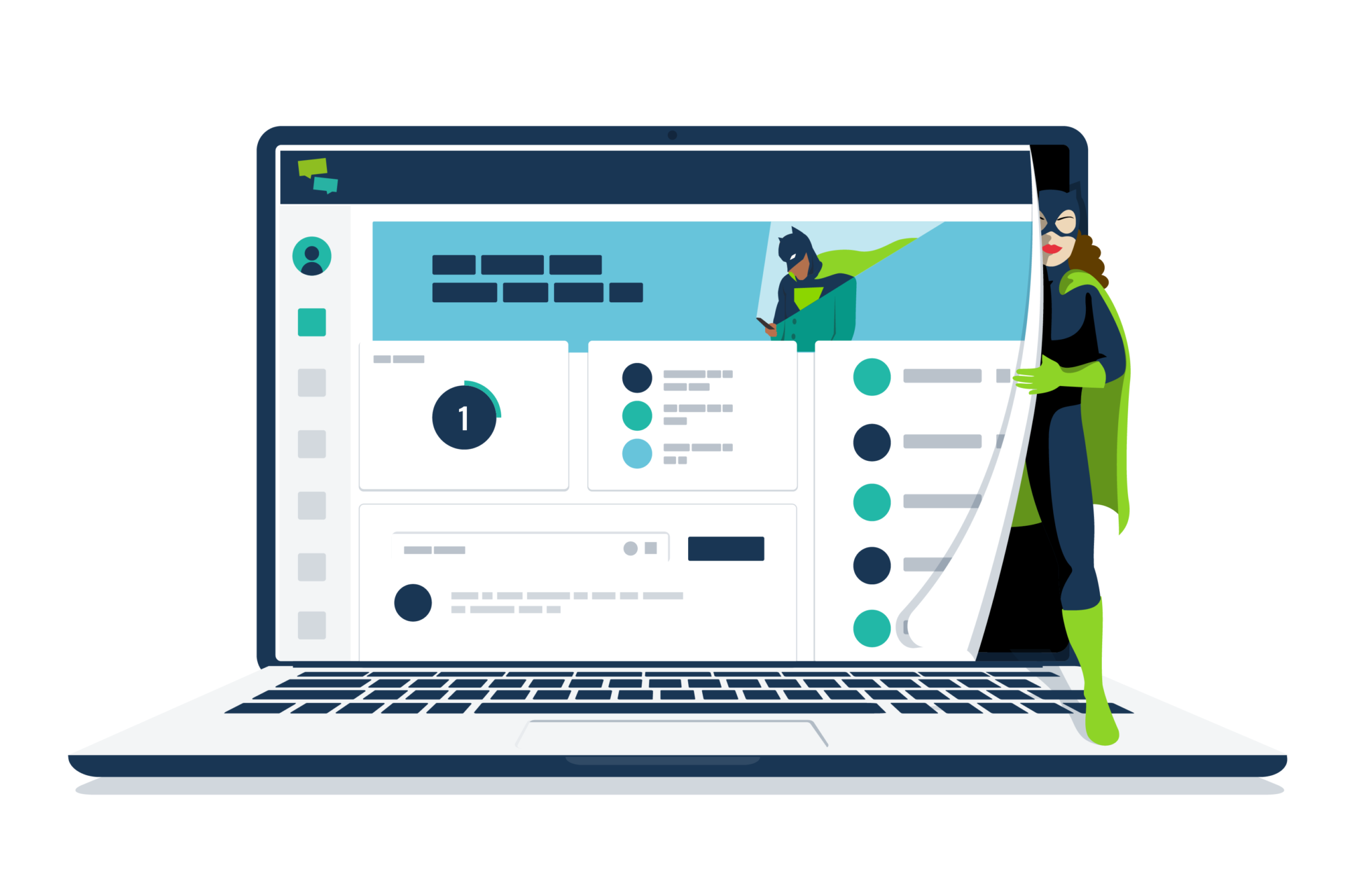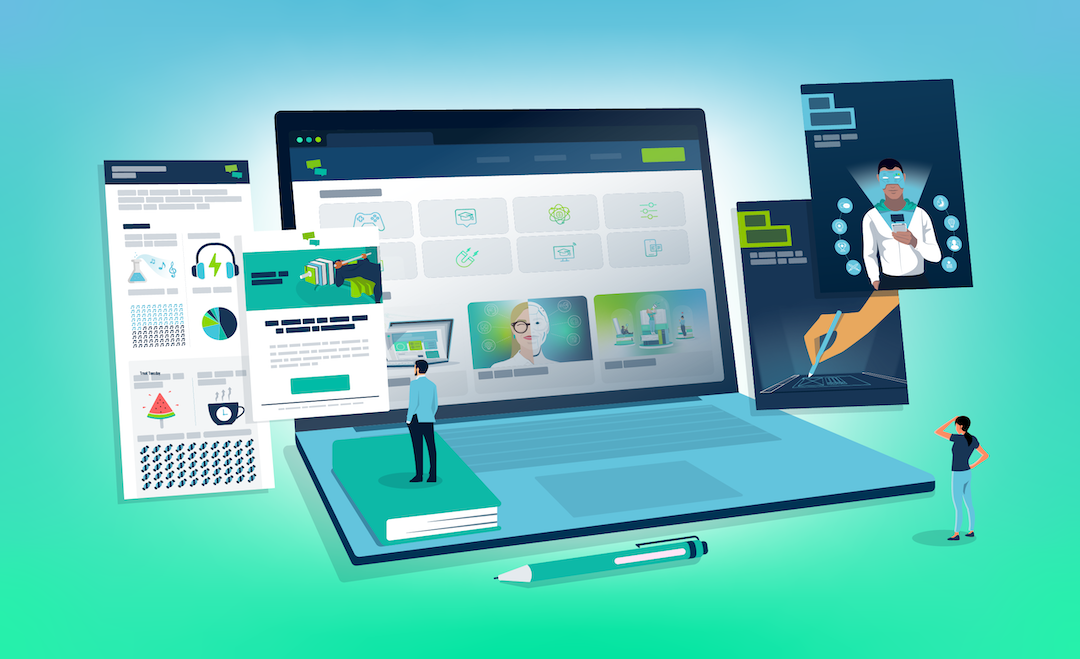
Online learning has taken the world by storm, especially in recent years. And even though workshops have traditionally been hosted in person, organisations have come to realise the benefits of hosting an online workshop.
With today’s innovative tools at your fingertips, digital workshops present an exciting opportunity to share knowledge and connect with like-minded individuals from all over the world. Knowledge is now accessible to anyone, anywhere and at any time.
These advantages are simply too great to ignore. However, hosting a winning online workshop takes some careful planning.
With this in mind, today we’ll look into the steps you should take when organising and conducting your online workshop.
What Is an Online Workshop?
Before we look into the process of planning and running your workshops in a digital environment, let’s start by understanding what these workshops are.
Online workshops refer to interactive training sessions that you conduct virtually through the internet. These workshops give your participants the opportunity to acquire and improve their knowledge and skills and engage in collaborative activities. And this all happens within a digital environment.
Typically, in-person workshops allow learners to network and collaborate with each other. Online workshops still provide these opportunities by incorporating tools and platforms that facilitate communication, information sharing and learning.
These workshops can be synchronous or asynchronous. Synchronous workshops take place in real time with participants interacting simultaneously within the digital platform. Asynchronous workshops, in turn, allow participants to access activities at their own pace.
Workshops, whether online or offline, usually focus on specific topics or subjects. These sessions are typically conducted by subject matter experts or knowledgeable trainers and instructors.
The online format offers numerous advantages, including increased flexibility and accessibility, as well as engaging features and wider networking opportunities. Let’s take a look at the benefits!
Why Host an Online Workshop?
Online workshops provide a slew of advantages without sacrificing quality or engagement levels. Here are eight reasons to go digital!
1. Wider Reach
With online workshops, you can reach a wider audience than ever before. After all, participants can now join from anywhere in the world. All they need is an active internet connection.
This, of course, means that you have the opportunity to engage with people from different geographical locations. As a result, you can increase your reach and potential impact.
2. Flexibility
Your workshop participants or instructors no longer have to travel to a physical training location. This makes it a more convenient training approach.
In fact, attendees can join from wherever they like. This includes the comfort of their homes or offices. This added flexibility can help you to boost your attendance numbers.
3. Cost-Effective

If you were to host a traditional classroom training session or a workshop, you would typically need to set a budget aside for venue rental, catering, travel and accommodation.
Conversely, hosting an online session requires fewer resources and less investment. After all, you can save on these in-person training-related costs.
Similarly, online platforms tend to be a more affordable solution as they make it easier to reach a larger number of attendees.
4. Enhanced Interactivity
By hosting online workshops, you can leverage various interactive tools and technological innovations. For example, you could implement live chats, polls, quizzes, breakout rooms or multimedia elements.
These tools help your audience to participate actively by asking questions, collaborating and sharing ideas. Ultimately, increased interactivity fosters engaging and dynamic learning experiences.
5. Reusability
Unlike in the real world, you can easily record your online workshop sessions. This helps you to create valuable content that you can repurpose in other formats later on.
Similarly, recordings create a useful resource for your participants, as they can refer back to them in the future. This extends the impact of your workshop beyond the live event and helps you to provide ongoing value.
6. Increased Accessibility
As online workshops take place in a digital environment, they enable you to provide inclusive and accessible training to a broader range of individuals.
After all, now people with mobility issues, geographical constraints or busy schedules can participate without limitation. This helps you to promote inclusivity and diversity.
7. Networking Opportunities

In-person workshops help interested audiences to connect and network. However, online learning workshops foster networking opportunities for a wider audience based on the previously discussed accessibility and flexibility benefits.
In fact, digital platforms make this possible by offering features like virtual breakout sessions and discussion forums. As such, online platforms can facilitate effective networking through a range of social and collaborative features.
8. Showcase Expertise
By hosting an online workshop, you can showcase your expertise on the subject matter. This, in turn, helps you to position yourself as a thought leader in the field.
After all, you can use the platform to share your knowledge, insights and experiences with a larger audience. As a result, you can build your professional reputation and attract a wider audience.
Six Steps for Hosting a Winning Online Workshop
Step 1: Planning and Preparation
Before you jump into hosting your online workshop, you need to do some thorough planning to ensure everything runs smoothly. Consider the following to ensure you’re well-prepared:
1. Determine Your Objectives
As with any training initiative, you should start by defining your objectives and goals for the online workshop. By having a clear focus, you’re better placed to structure your content and training activities effectively.
As such, determine what specific skills or knowledge your audience should be able to gain after participating in the workshop.

2. Identify Your Target Audience
Your workshop will only be successful if you understand your target audience. After all, if your training session isn’t relevant to your audience, they won’t engage with it.
As such, identify your target audience. You can do so by creating learner personas. Then, consider their current skill levels and prior knowledge to ensure they will benefit from your online workshop.
By understanding your audience, you can tailor your content and training delivery to meet their specific needs.
3. Set a Date, Time and Duration
Understanding your target audience also helps you to select a date and time that is convenient for them. When setting the date, time and duration, make sure to consider time zones and your participants’ availability. Try to optimise these different factors for maximum attendance.
4. Choose Your Online Platform
Once you understand your needs, you should explore different online platforms and choose one that aligns with your requirements. After all, your digital platform’s capabilities will influence your activities and content.
When choosing your platform, focus on factors like ease of use, interactive features, possible participant limits and available technical support.
The right platform for you will vary based on your needs. A simple video conferencing tool could be sufficient. Alternatively, you may wish to invest in a specialised learning platform such as a learning management system (LMSs).
Step 2: Creating Your Workshop Content
While successful training sessions have many components to them, your content plays a big part in capturing your participant’s attention. As such, you need to carefully consider your training materials to promote active engagement and boost knowledge retention.

1. Outline Your Session
Before diving into the content creation process, you’ll want to develop a comprehensive outline or agenda for the session. This outline should determine the main topics and subtopics you intend to cover.
Your outline will then serve as a roadmap for the process of developing your workshop materials. This helps you to ensure a logical and engaging flow of information throughout your session.
2. Organise Content
Simply presenting your workshop audience with content won’t make for an engaging or beneficial training session. As such, organise your content in a logical order and break it down into manageable chunks or modules.
This will help your participants to absorb information. After all, structuring your content effectively helps to prevent cognitive overload.
3. Incorporate Interactive Elements
One of the key advantages of online workshops is how easily you can foster interactivity. After all, most digital platforms come with interactive features that help you to engage your audience.
For example, you can use:
- Polls and Surveys: Polling features are an excellent way to gather participants’ opinions or assess their understanding of the topic. It’s an easy way to encourage active participation and gather valuable information as these tools make it easy for your learners to share their responses.
- Quizzes and Assessments: By incorporating short quizzes or assessments, you can evaluate your participants’ knowledge. This makes knowledge reinforcement easier as you’ll know what skills gaps still prevail. And, of course, make sure to add gamification elements to your quizzes to make them fun and engaging.
- Discussion Rooms: You can facilitate group discussions by using chat features or assigning participants to breakout rooms. These tools help you to encourage collaboration and knowledge-sharing. After all, participants can share their perspectives, ask questions and collaborate effectively.
4. Use Multimedia
Workshops are typically more conversational in nature. However, you should still attempt to leverage multimedia to enhance the learning experience. For example, include:
- Videos: Videos help you to illustrate complex concepts, demonstrate practical skills and provide real-life examples. Videos are also an excellent way to break the monotony of a lecture-style workshop.
- Slides and Visual Aids: By including diagrams, infographics and images, you can create visually appealing training experiences. In addition, visuals help you to make the subject matter more memorable and accessible. After all, the human brain processes visuals 60,000 times faster than text.
- Audio Recordings: Create audio recordings or podcasts and share them with your audience. They can explore the recordings before or after the session, which allows them to review the content at their convenience.
However, simply crowbarring multimedia and interactive elements into your workshop session won’t benefit the participants. As such, ensure they align with your objectives to enhance the learning experience.
Next up, let’s discuss effective strategies for promoting your online workshop and managing registrations.
Step 3: Promoting and Managing Registrations
All your efforts will go wasted unless your target audience knows your workshop is taking place. As such, your next step is to promote the session and manage any participant registrations.
The aim is to generate interest, attract participants and ensure potential attendees find the registration process to be relatively painless. Let’s explore some of the strategies you can use to maximise participation.
1. Craft Your Promo Materials
Before you start promoting the workshop, craft a compelling description or landing page for your training session. It should highlight the key objectives and benefits of the workshop.
In fact, answering the ‘WIIFM’ question (what’s in it for me?) from the get-go will help you to attract your target audience. They will know what to expect and understand the benefits of attending your workshop.
As such, use persuasive language and include any unique selling points. Make sure to mention any subject matter experts that are joining the session. And, of course, make sure your promotional content looks professional and attractive.
2. Set Up a Registration System
Set up a user-friendly registration system. Some digital tools enable you to manage registrations on the same platform.
Your main focus should be on ensuring that participants can easily sign up for your online workshop. If your target audience struggles to even register, they are unlikely to go ahead and join the session.
Collect essential participant information, such as name, email address and any other relevant details. However, make sure to only gather data you’ll need to tailor the workshop or communicate with the registered participants.
3. Promote on Social Media

Once you have your registration system in place and you’ve created your promotional materials, make sure to get the word out there.
You can, for example, leverage the power of social media platforms and email marketing. Create engaging posts, tag any subject matter experts, share teasers or short videos about the topic at hand, and include a clear call-to-action to register.
You can also utilise relevant groups and communities on platforms like LinkedIn. This helps you to reach your target audience and spread the message.
4. Send Reminders
Don’t skip this step! To ensure maximum attendance, send some timely reminders or push notifications to notify your registered participants that the session is approaching. Make sure to highlight the date, time and any preparation they need to do beforehand.
Similarly, make sure to provide clear joining instructions. After all, your audience needs to know how to access the online platform. This includes any required software, materials or login credentials.
By having a point of contact addressing any pre-workshop or session-related queries, you can ensure your participants feel supported and ready.
Step 4: Preparing for the Workshop Session
Before your online workshop takes place, you need to be prepared. After all, you want to ensure a smooth and professional experience for both you and your participants.
Your preparation should focus on minimising technical difficulties and creating a professional yet engaging atmosphere.
1. Familiarise Yourself with the Online Platform

You have chosen your platform. Now it’s time to get familiar with it. As such, spend some time exploring the online platform you’ll be using to understand its features.
You won’t want to waste time during your online workshop trying to navigate the system or operate specific features. By testing everything beforehand, you can ensure all features work properly and troubleshoot any issues.
2. Prepare a Contingency Plan
Unfortunately, online environments have their own set of shortcomings. For instance, you may encounter technical problems or have connectivity issues.
That’s why it’s important to prepare a contingency plan to strategize in case of any technical glitches. Identify common issues that may occur and plan alternative methods or workarounds to ensure minimal disruption to your workshop.
3. Provide FAQs and Guidance for Common Issues
A simple FAQ document or troubleshooting guide helps you to address any common problems your participants may encounter. This saves you time during the session and will help your participants to feel supported.
For example, you can include steps for resolving problems like microphone or camera malfunctions, login difficulties or audio and video synchronisation issues.
4. Have Backup Communication Channels Available
In case you experience some difficulties on your primary online platform, you should have backup communication channels available. You can then jump onto the other channel to share updates or further instructions.
The key is to ensure you can maintain communication. Your participants are likely to leave the workshop session if they encounter challenges and don’t know what to do.
5. Prepare a Distraction-Free Background
As an instructor, you want to present yourself as a professional expert. This extends to the background the participants will see during the online session.
In fact, selecting a clutter-free environment will help your participants to stay focused on the task at hand. Similarly, consider your lighting conditions and audio quality to ensure your audience can see and hear you well.

Step 5: Engaging Participants During the Session
You’re finally ready for the big day! It’s time to host your online workshop.
However, more than one in three people have admitted to feeling drowsy or snoozing during a conference or meeting. As such, you need to keep your audience engaged to make sure your workshop is beneficial.
By actively engaging participants during the online session, you create an immersive and interactive learning experience that enhances knowledge retention and participant satisfaction.
As such, let’s take a look at some strategies you can use during the workshop to maintain engagement:
1. Encourage Active Participation
Actively involving your participants throughout the session helps you to maintain their attention. However, you’ll likely notice that most participants will need some encouragement before they will engage.
With this in mind, pose thought-provoking questions, initiate discussions and ask for participant experiences and perspectives. In addition, make sure to incorporate interactive activities, like group work or role play, to encourage active participation.
2. Promote Social Learning
Social learning is an excellent way to boost knowledge retention. After all, it enables learners to understand the subject matter from different perspectives and experiences.
This can be extremely beneficial for organisations and learners alike. It’s no wonder that 58% of L&D professionals want to introduce social networks into their online learning approaches.
It’s also an excellent way to increase engagement. As such, incorporate social learning features into your workshops so that participants get an opportunity to share their knowledge and collaborate.
3. Monitor the Chat
During the workshop, you can encourage participants to ask questions using the chat or Q&A functions of your online platform. This is a great way for your learners to share their thoughts or seek clarification.
However, make sure to monitor these areas carefully and respond promptly. You could even have short Q&A sections scheduled within the workshop to create a supportive learning environment.
4. Encourage Reflection and Self-Assessment
Reflection and self-assessment help your learners to identify their strengths and weaknesses. This, in turn, guides them in their learning journey as they can then identify steps for further training.
You can provide opportunities for reflection by incorporating activities or quizzes. You could even have a Leaderboard so that participants can see their performance and knowledge level compared to others.
5. Adhere to the Session Agenda
Your learners are guaranteed to lose their interest if your workshop only covers a fraction of the content you said it would. After all, each individual has their own unique training needs, interests and preferences.
With this in mind, give clear guidance on how long each activity will take and provide regular time updates. This will help you to maintain a sense of structure without your participants feeling rushed or overwhelmed.
Step 6: Follow Up After the Session
After hosting your online workshop, don’t forget to engage in follow-up activities.
This will help you to demonstrate your continued commitment to your participants’ success. Similarly, you can foster ongoing engagement and improve the quality of your future workshops.
Let’s take a look at how to maintain engagement beyond your workshop session.
1. Share Session Resources
Send a follow-up email to your participants to thank them for joining the session. You should also share any of the session resources, materials or additional references that were discussed during the workshop.
By sharing the session resources, your participants can benefit from the content later on. This helps you to reinforce their learning as they continue their personal and professional development.
Similarly, you can provide any additional resources or recommended articles or books on the subject matter. This provides value to your participants’ learning journey beyond the session.
2. Request Feedback

As a part of your follow-up process, you should request feedback from your participants. This should cover the content, activities and the online workshop platform itself.
You can use online survey tools to collect feedback anonymously. However, if you have hosted your workshop on an LMS or another learning platform, you can use it directly to create surveys and collect data.
3. Reflect and Improve
Once you have collected feedback, you need to take it on board and improve. As such, reflect on the strengths and weaknesses of your feedback. Focus on evaluating participant engagement and the effectiveness of your instructional design strategies.
This feedback should inform how you improve your future online workshops. This, in turn, ensures continuous growth and refinement of your online workshop offerings.
Final Words
When done right, online workshops are an excellent training method for busy audiences spread across the globe.
After careful preparation, your focus should move onto engaging your participants during the session. Luckily, today’s modern tools provide various interactive features that help you to encourage participation.
These six steps are guaranteed to get you started! However, learner engagement is its own challenge entirely.
Our tip sheet, ‘150 Nifty Engagement Tips’, helps you to supercharge your engagement levels. Get your free copy by clicking the link below!





